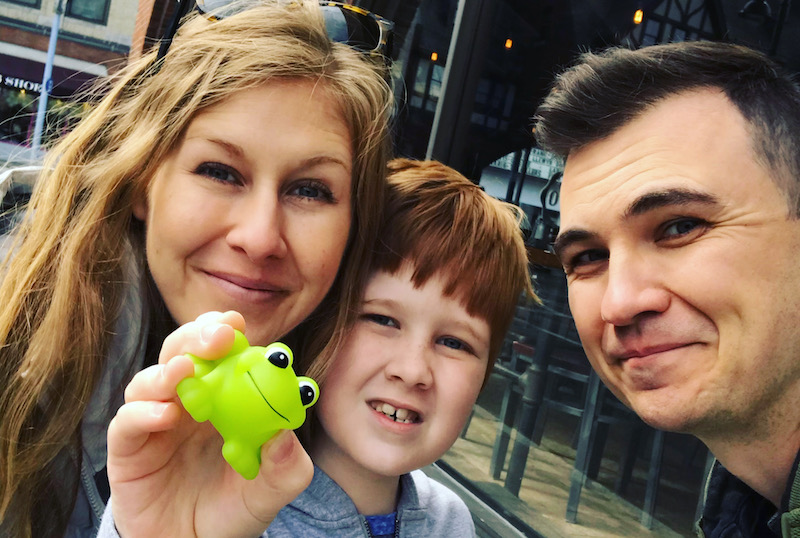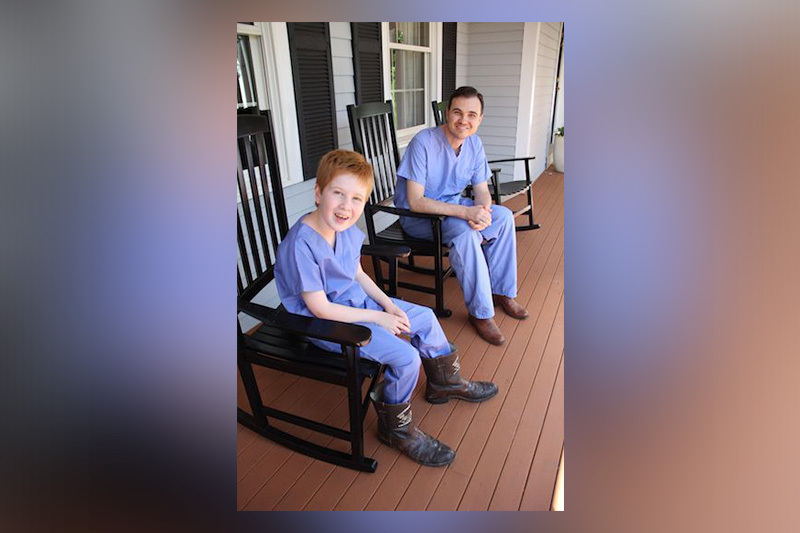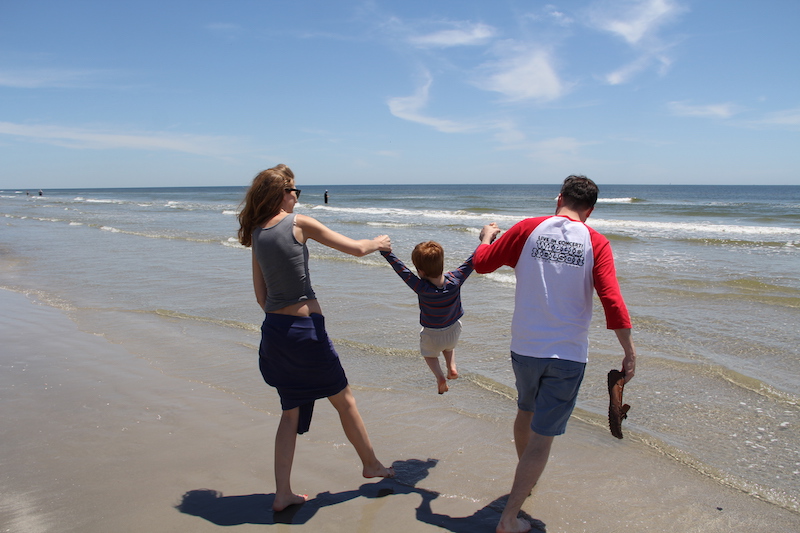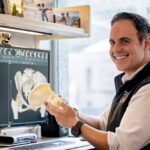Provider Spotlight: Meet Dr. Grant Hogue

Dr. Grant Hogue completed his fellowship in orthopedic surgery at Boston Children’s Hospital in 2015. He spent the next five years at the University of Texas in San Antonio as division chief of pediatric orthopedics. Soon after he relocated to Massachusetts to join the Boston Children’s Hospital Spine Division, Governor Charlie Baker issued a stay-at-home advisory to prevent the spread of COVID-19.
What was it like to arrive in Boston at the beginning of the COVID-19 outbreak?
I arrived in Boston on March 1 and my official first day at Boston Children’s was April 1, the same week that the world shut down. For the entire month of April, I was never physically in the hospital. But I was seeing patients by teleconference.
What is it like at the hospital these days?
It was very quiet when I first started going in. There was nobody on the floor except families with urgent needs. But recently, things started picking up. We’ve been able to do more spine and hip surgeries and there’s more of a buzz in the halls.
What drew you back to Boston?
One was opportunity to work with Dr. John Emans. He is the father of treating early onset and congenital spine problems. Being able to operate with him, co-manage patients with him, and slowly take over patient cases was a challenge I felt I was ready for.
Another is the incredible opportunity to do research here. The breadth of research at Boston Children’s and the ability to do large trials is unmatched in the country.
On a personal level, I’ve got a 7-year-old son on the autism spectrum and the services here are the best in the world. By being here, our son will have access to better opportunities.

What do you love most about your job?
After a patient has had spine surgery, usually by the second day, when they stand up next to their parent and realize they’ve grown an inch or two just by us straightening their spine. It’s such a shocking experience. It’s very tangible that this thing has happened to them — there’s often a bit of wonderment in their eyes.
That, and the opportunity for learning. Kids will tell you what you could have done better, for instance, they really don’t like to be woken up at 6 a.m. when you’re doing rounds. They constantly teach me how I can improve.
What’s the hardest part of your job?
Not operating on a patient who will eventually need surgery, either because they’re too young or they have other medical problems that have to be resolved first. Sitting and waiting when you know a kid will eventually need surgery is very hard. It’s hard for parents too.
What’s one thing about you that might surprise your patients?
I wear cowboy boots to work. They’re the most comfortable, wonderful shoes in the world. It wasn’t that unusual in Texas, but in Boston my footwear takes a lot of people by surprise.
What music is on your playlist?
I like to listen to old French music when I’m writing or doing research. I don’t speak French, so I can enjoy the melodies without getting distracted. In the operating room (OR), it’s usually a mix of classic rock and Willie Nelson.

Who gets to decide what music plays in the OR?
(Laughs.) There is a musical hierarchy in the OR. It’s a level of nuance you could not imagine. Some surgeons don’t want music in background at all. I’m one of those who likes to have music playing, although I usually put it out to a vote.
What was your favorite game as a kid?
I grew up out in the country in Georgia. There was heavily wooded area and a dry creek bed behind my grandparents’ house. My cousins and I cut down a tree over the creek bed and then we spent hours balancing on the tree and trying to make each other fall off. If you fell, you’d lose.
If you could be any animal, what would you be and why?
My 17-year-old dog Scout. She is the most pampered animal in the world.
Learn more about the Spine Division.
Related Posts :
-

How a meniscal transplant made me a Boston sports fan
I was in kindergarten when my knee started popping and cracking. My parents and I didn’t know it at ...
-

Hard and beautiful at the same time: Five lessons of raising a medically complex child
When they learned they were expecting a baby, Michelle and Stephen Strickland were delighted. The South Carolina couple looked forward ...
-

3D imaging could become standard practice in orthopedics. Here’s how.
It took a trained eye to see the abnormality on the patient’s X-ray. There, hidden behind the acetabulum was ...
-

A safe, pain-specific anesthetic shows preclinical promise
All current local anesthetics block sensory signals — pain — but they also interrupt motor signals, which can be problematic. For example, ...





